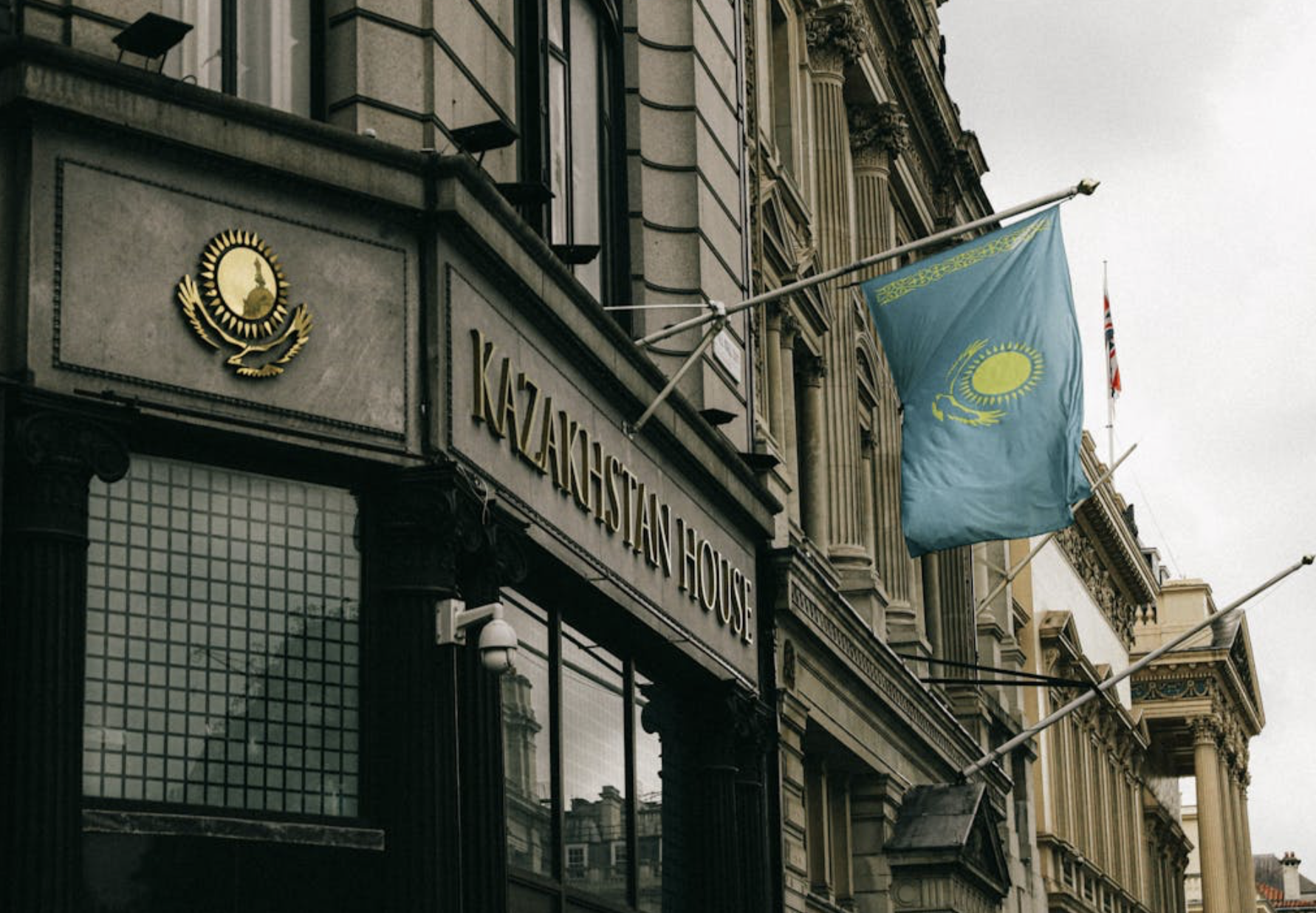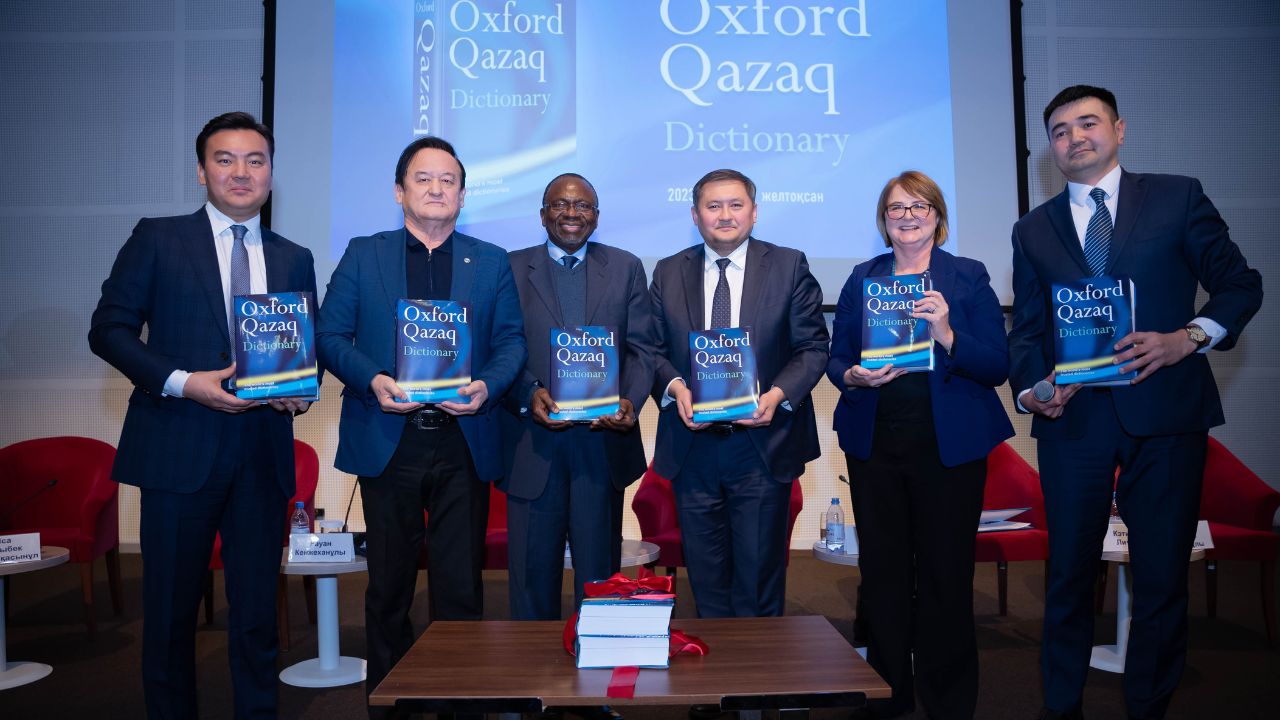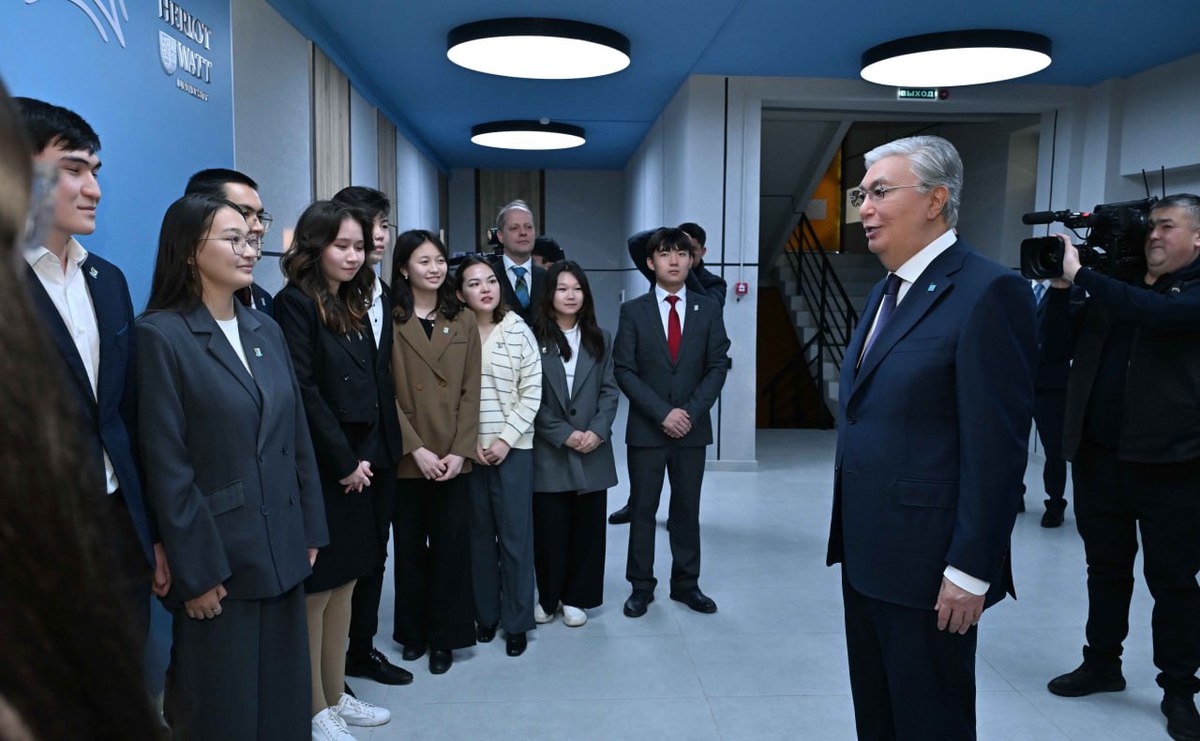ASTANA – Education and culture have long been central pillars of the enduring partnership between the United Kingdom and Kazakhstan. The latest developments in cooperation between the two nations underscore a shared commitment to further enhancing collaboration.

Photo credit: tornoderodas.com.br.
In a short space of time, the agenda included the opening of the Kazakh Centre in the United Kingdom, the introduction of the first Oxford Qazaq Dictionary, the agreement to launch Kazakh language courses at the University of Oxford, positive outcomes of recent educational initiatives, and the expansion of intercultural ties.
The opening of the Kazakh Centre in the United Kingdom
For the Kazakh community, the opening of a cultural center in the United Kingdom was a momentous event. Aimed at promoting Kazakh culture, traditions, art, and language, the center serves as a unifying space for compatriots.
In an interview with The Astana Times, Kamshat Kumisbay, a Kazakh diplomat in London, said the center is “planning exciting projects in cooperation with the Kazakh Embassy in London on the promotion of our culture and language.”

The Kazakh Centre in the United Kingdom opened in December 2023. Photo credit: Kumisbay.
She will bring over 15 years of experience in diplomatic service to her managing role at the center along with Ismail Kesici, who has been spearheading major events for the Kazakh community in the United Kingdom. Kesici contributed to the establishment of the first U.K.-based Kazakh Association and worked on the creation of the Federation of Kazakh Associations in Europe.
“From cultural festivals and professional networking events to educational programs, the upcoming initiatives aim to broaden the knowledge about Kazakh culture in the United Kingdom and foster a sense of pride and connection among the Kazakh diaspora,” said Kumisbay. Today, she manages and plans the center’s activities while on her maternity leave, including the upcoming Nauryz celebrations.
The distinguishing feature of the center, according to Kumisbay, is its reliance on the “heartfelt dedication of volunteers from different backgrounds.”
“Every individual involved offers their time and skills out of a profound affection for their homeland and a desire to share the beauty of Kazakh culture. This volunteer-driven ethos highlights the community’s deep commitment to the center’s mission, ensuring its position as a lively and integral component of the diverse cultural scene in the United Kingdom,” she said.
“As it continues to evolve, the Kazakh Centre welcomes support and involvement from everyone interested in celebrating and learning about Kazakh culture. It stands as a beacon of community and cultural preservation, actively building bridges between cultures and creating a lasting legacy of Kazakh heritage in the United Kingdom,” she added.
The introduction of Oxford Qazaq Dictionary and the launch of Kazakh language courses at the University of Oxford
Last year marked a landmark event in the global promotion of Kazakh language. In December 2023, the Nazarbayev University (NU) presented the first Kazakh-English and English-Kazakh Oxford Qazaq Dictionary. The dictionary was developed by the Qazaq Tili international association at the initiative of Kazakh President Kassym-Jomart Tokayev.

The inaugural edition spans 1,300 pages with a print run of 10,000 copies. Photo credit: NU.
Following the official approval from the renowned publisher Oxford University Press, over 50 seasoned linguists, mostly from the Akhmet Baitursynuly Institute of Linguistics, dedicated four years to translate 60,000 words according to the methodology of the Oxford English Dictionary.
The Kazakh language will be included in the Oxford Global Languages platform, a global authoritative dictionary network, opening the opportunity for the country to join the global linguistic community. British Ambassador to Kazakhstan Kathy Leach called the event a “huge leap forward.”
The next educational breakthrough in cooperation with the United Kingdom will be the launch of Kazakh language courses at the University of Oxford. The respective agreement was signed between the university and the Kazakh Ministry of Science and Higher Education a month ago.
Collaboration between Kazakh and British universities
The Kazakh-British Technical University (KBTU) is deemed to be the first large-scale education project between Kazakhstan and the United Kingdom. Opened back in 2001, the KBTU has become one of the leading technical universities in Kazakhstan. The higher education institution awards its students with double undergraduate degrees in partnership with the University of London. They receive diplomas from both the London School of Economics and Political Science (LSE) and KBTU.

President Kassym-Jomart Tokayev during his visit to the branch of the Heriot-Watt University in Aktobe in December last year. Photo credit: Akorda.
Yet another extensive initiative fostering the exchange of educational expertise is the establishment of the De Montfort University Kazakhstan (DMUK) in Almaty in 2021. The DMUK aims to deliver qualifications from the British education system. It became the first U.K. campus to enter Kazakhstan.
The United Kingdom, the birthplace of the creative economy, is also keen to share its creative industry expertise with Kazakhstan. The recently launched creative hub at the DMUK is one of the examples of how it helps Kazakh partners in this effort. During its opening ceremony, Ambassador Leach commended Kazakhstan’s creative ambitions and offered the British Council’s expertise in helping the country to expand its creative landscape.
Meanwhile, 286 students are completing the first year of their studies at the branch of the Heriot-Watt University in the Kazakh city of Aktobe, one of the oldest British institutions. In February last year, the meeting of the United Kingdom-Kazakhstan intergovernmental commission in London resulted in achieving another important agreement in education – the introduction of three English-language programs (oil and gas business, electric power engineering, and computer engineering) at the Zhubanov Aktobe Regional University.
Guidebook for Kazakh students in the United Kingdom
In the beginning of this year, the U.K.-based Qazaqstan Graduates Association (QGA) has released an updated guide designed to help young compatriots to adapt to student life. The handbook titled “Kazakh Student’s Guide to Life in the United Kingdom” contains recommendations for academic and professional growth, as well as practical advice on visa application, accommodation, healthcare services, and transport.
The co-founder of the association Daniyar Aldabergenov, who is a doctoral researcher in oncology and pharmaceutical sciences at King’s College London (KCL), told The Astana Times the association includes “114 members enrolled in undergraduate, postgraduate, and doctoral programs, as well as professionals who have joined it as part of their further education and internships.”
“The first edition of our handbook was published in June last year, on which we diligently worked during breaks between studies and work for three months. The premises were simple – the same questions asked by students in messengers, either by those about to arrive or already enrolled applicants,” he said.
Aldabergenov noted that student members represent completely different areas of study, from cybersecurity to medicine, which “provides the association with an opportunity to better understand the target audience.”
The association was established in November 2022 with the assistance of the Kazakh Embassy in London. The founders of the association, according to Aldabergenov, enlisted the support of Kazakh Ambassador to the United Kingdom Magzhan Ilyassov. The organization sees its mission in uniting students and providing support to newly arrived young Kazakhs. Apart from that, it serves as a platform for educational and cultural events, as well for healthy lifestyle activities.
“Like last year, we will hold a series of educational webinars on job seeking, meetings with experts from different industries, and organize a job fair primarily in cooperation with domestic companies. To enhance professional and academic skills, we will also host scientific conferences,” he said.
According to Aldabergenov, it is planned to establish cooperative relations with student associations of other countries.
Present-day ties between Kazakh and British experts, educators, and professionals led to the creation of interest-based platforms for cooperation, such as the British-Kazakh Society (BKS). For more than 20 years, BKS has ensured knowledge-sharing between scientific and business circles, state structures, and non-governmental organizations. One of the upcoming events supported by the BKS will be held at Lewis Silkin’s London office on March 5. The Annual Student Day is a seminar organized by the British-Kazakh Law Association for those who wish to start a career in law.
The rapprochement between the nations arises from simple people-to-people interaction in various domains. Professional activities carried out by Kazakhs living in the United Kingdom encompass a raft of domains. Some are bridging cultural bonds through music or find common ground with British people in philosophy and art, others are introducing cutting-edge practices in medicine or elaborate new language learning methods.
